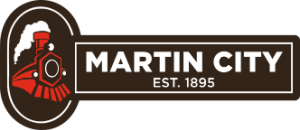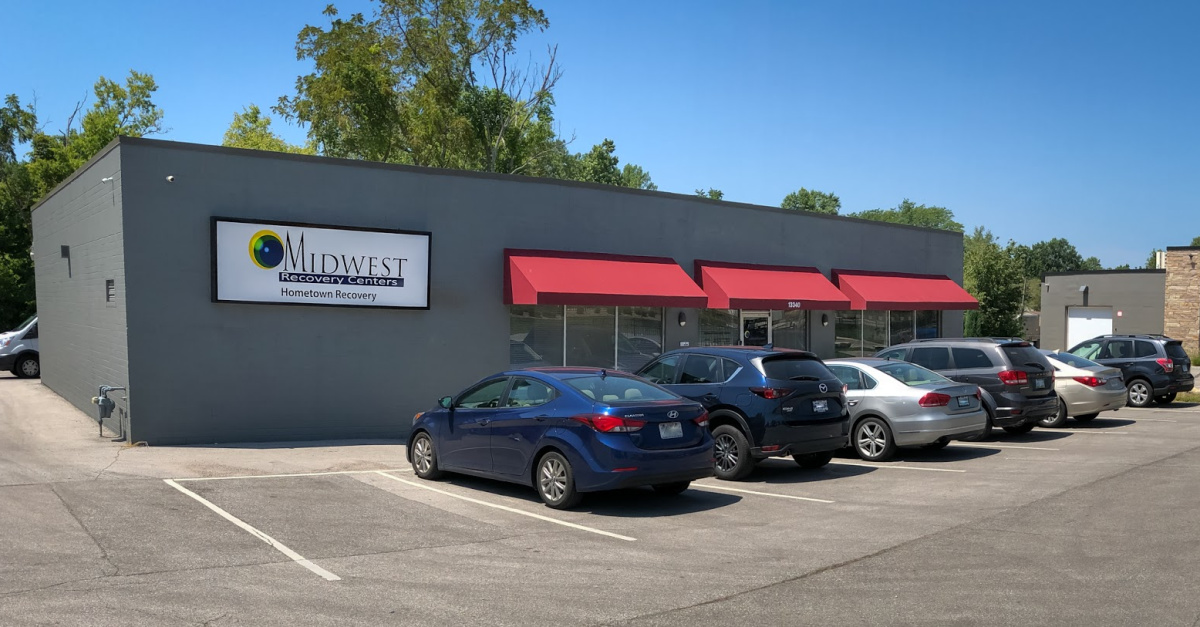Martin City Addiction Professionals Push Through Pandemic To Deliver Care.
Dentists, optometrists, and some of the most valuable mental health expertise in Kansas City is right here in Martin City. Our community’s healthcare niche is growing and Midwest Recovery Centers is playing a key role. The business is headquartered on Holmes Road between Fishtech and Grade-A Tree Care and has been rapidly expanding as a leading hometown resource for adults struggling with addiction.
“We’re working out of two buildings here on Holmes and planning for additional space soon,” says Operations Director Kevin O’Grady. “We’re not the kind of business that’s motivated by growing our bottom line, but we’re definitely interested in reaching more and more people, and making a bigger impact in the community.”

Midwest Recovery Centers is bigger than you might think. The company’s main offices are tucked away in two buildings on the west side of Holmes and it owns five houses nearby in Kansas City and Overland Park where patients can stay during recovery. More than 50 patients now depend on the four-year-old business and the number keeps growing.
“We continue to add beds, plus we have a fully functioning community-based outpatient program where people continue living at home and come here for outpatient services and counseling,” explains O’Grady. “Our next project is developing a detox residential facility so that we can immediately take in people with severe addictions and stabilize them rather than sending them to the hospital first. We’re hoping to set that up somewhere right here in the Martin City area.”
O’Grady says the detox facility will complete a plan designed to deliver all levels of care for an entire year. “It will be a very important achievement because continuity of care makes a huge difference in helping someone get back on their feet. Staying with us and remaining under our care for a full year dramatically increases the chances of success.”
A team of around 15 employees, including Masters-level clinicians, a psychiatrist, and professional support staff is expected to double soon and include nurses. Services are tailored for both men and women and help is always just a phone call away. “If you’re struggling at all, for any reason, please give us a call. Our focus is addiction recovery so we can’t help everyone, but we can help everyone find the help they’re looking for. Don’t hesitate to contact us.”

Good Intentions Find a Home in Martin City
O’Grady and his partner, CEO Jeff Howard, came to the Kansas City area after their paths kept crossing in corporate circles in Arizona. They became disillusioned by the politics and other distractions that often riddle corporate operations, so they decided to go their own way. O’Grady and Howard huddled together to plan a business targeting a community that wasn’t already saturated by flashy treatment options marketed from far away.
“You know there’s a lot of money spent on attracting people with addiction to care facilities in warm climates and touristy areas where there’s the added appeal of beaches and things like that,” says O’Grady. “We wanted to get out of all that and the corporate culture, and just go to a community in need and build a program that helps. Kansas City has very few addiction resources and we happened to know someone here so we loaded up and moved.”


Midwest Recovery Centers opened its doors in 2016 and the business immediately took off. They knew exactly what they were doing and easily connected with the people they were trying to help. However, O’Grady says they didn’t have much experience with running a business and found out the hard way that the devil is in the details.
“Professionally, we had done this kind of thing before. We were very confident that we were going to run a quality care facility and that’s what we did from the start. What we had never done before was build a business in a new town with new insurances and new factors like payroll and cash flow.”
While their good work continued, their problems piled up and they came within two weeks of going under. “It was so strange,” O’Grady remembers. “We were full in terms of our workload but struggling at the same time.” What followed was learning the hard way how to run a business, but they dug in and figured it out. Midwest Recovery Centers made changes and found solid ground within a few months. These days the future couldn’t look brighter.
New Context for an Age-Old Problem
The COVID pandemic brought immediate changes to methods at Midwest Recovery Centers but the problem of addiction itself and their approach to treatment remains basically the same. Video conferencing, for example, is now an option that O’Grady believes can be helpful. “It’s not ideal, but it certainly works because the most important thing is that you can relate to the people you’re working with and video conferencing doesn’t have to get in the way of that.”
Some patients aren’t fans of video conferencing, but others find comfort in it. Either way, it can become a lifeline if you live in a rural town and depend on trips to Martin City to control your addiction. “Some people see us and leave their appointments feeling great. But then they return home to a small town with no support resources. So, online communications with us really keeps them going.”
Of course, masks and hand sanitizers are a way of life now throughout Midwest Recovery Centers and the space is fully sanitized every week. Other than that, worries about the pandemic take a back seat to ongoing treatment of a problem that doesn’t change, even in these strange times. O’Grady says addiction is always prevalent, regardless of the pandemic. About 10% of the American population struggles with alcohol and other drugs. That’s about 30 million people.

“I don’t know that we’ve been busier because of the pandemic because the unfortunate truth is we’re always busy. Addiction is a persistent problem that no communities escape. It infects the rich and the poor and doesn’t care about the color of your skin or where you live. It’s a human problem. We treat executives, laborers, athletes, clergy, the list goes on. The pandemic doesn’t change that reality.”
If you’re predisposed to addiction, the pandemic may push you closer by driving common circumstances that lead to abuse, such as isolation, financial stress, and job insecurity. And O’Grady says the way the pandemic is shaking up our routines can cast new light on your problem.
“Being stuck at home can take away excuses that people use to justify their addictions. For example, they might tell themselves that they drink because it’s part of their job. Maybe they have to entertain clients or socialize with colleagues. But then they find themselves alone at home and want to drink anyway.”
O’Grady says spending more time around the house can also reveal warning signs to family members. “The addiction becomes more visible than before. Your family might see you drinking more, more often, or at unusual times, and encourage you to get help. That’s not uncommon.”
Regardless of what brings your addiction problem to light, O’Grady emphasizes that nothing should stand in the way of getting help. It’s the right thing to do and it doesn’t make you different from anyone else. “Things like blame and shame aren’t useful at all. Addiction is a sickness — period. Professional treatment heals. That’s what we’re here for and that’s how we define our success as a business. It’s not about how much money we can make. It’s about how many people we can help.”
Hometown Recovery’s Hometown
So if you need help with an addiction problem, give priority attention to the people who work in your own community and know what life is like around here. Rather than being tempted by rehab get-aways to exotic destinations, consider solving your problem right here where people understand you a little better. Midwest Recovery Centers specializes in local support from professionals who are more like neighbors, devoted to the health of the community in which they live.
“Hometown Recovery is what we stand for,” says O’Grady, preparing for his next appointment inside a cool office on a hot summer day in Martin City. “And we couldn’t feel more at home than we do right here. We love Martin City and the way it’s coming to life through revitalization is very cool. We had no idea what to expect during the rush to move in and get settled back in 2016. But wow, did we get lucky or what? Martin City is the place to be and certainly the best place for Midwest Recovery Centers as we grow and make a bigger difference in the community.”
Call Midwest Recovery Centers today at 844-505-4045 or make contact online. If your child needs help, Midwest Recovery Centers encourages you to contact The Crossroads Program, another healthcare provider located nearby.



